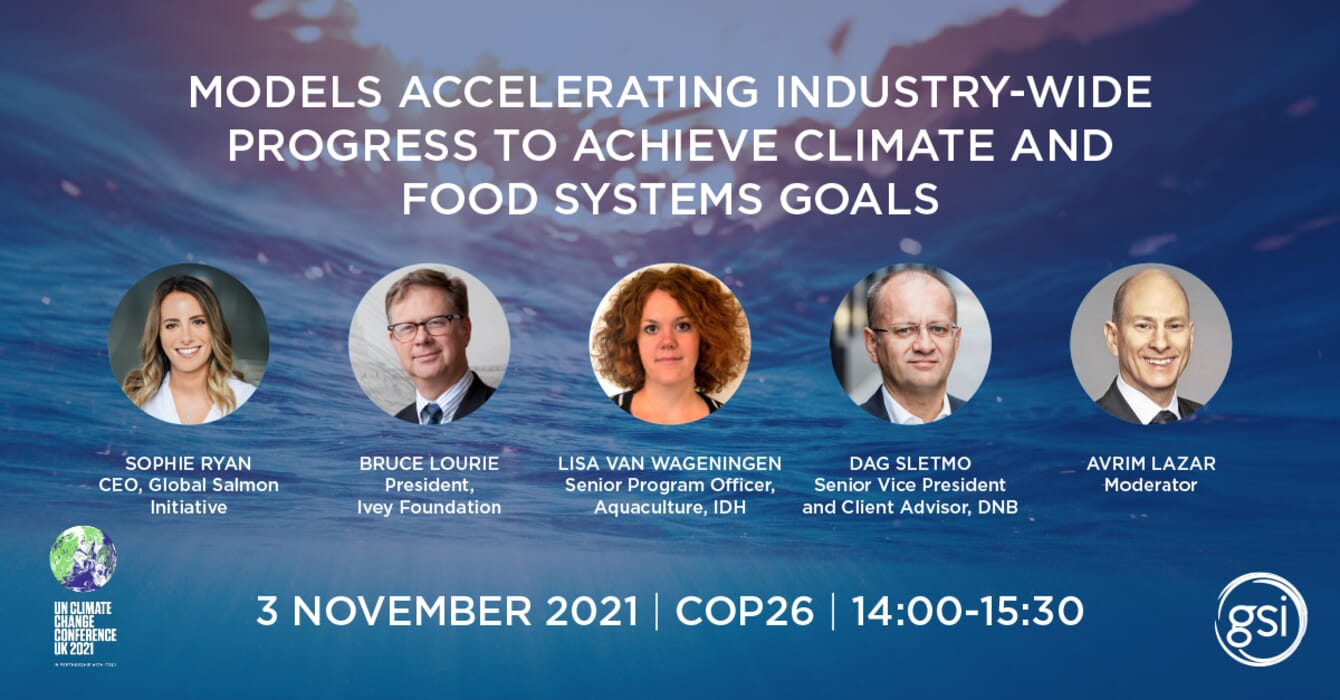
At an event organised by the Global Salmon Initiative (GSI), Sophie Ryan, CEO of the organisation, highlighted that through GSI’s pre-competitive platform, almost 50 percent of the global farmed salmon industry put sustainability at the core of their business strategy and they’re delivering measurable change.
“We know that to meet climate and food system goals, business as usual will not suffice. We need radical change and we need it at speed and scale. That’s where GSI comes in, by motivating ambitious goals, supporting knowledge exchange and driving innovation to get there. This is not only a model that can work in aquaculture. It can and should be replicated in other sectors,” she argued.
Speaking from her experience in emerging aquaculture markets, Lisa van Wageningen, senior programme officer at IDH trade, also reiterated the importance of motivating industry transformation through collective work. She noted that it’s key to set goals, but these should not be focused on the end goal, or specific target in the beginning, companies just need to get going. She noted that in IDH’s experience, once companies get going and start collecting data, the areas of improvement can be identified and improved upon. Through initiatives like IDH’s Farmfit Fund, the world’s largest public-private impact fund for smallholder farmers, finance can be unlocked and linked to environmental improvements.
Finance is always key, not only for funding the necessary improvements, but increasingly in channeling the efforts and funds in the right direction. Panelist Dag Sletmo, senior vice-president at DNB, spoke of the power of green bonds in enabling private sector’s transition to increasingly sustainable operations.
“Private sector will face pressure to reduce emissions from governments, the public, NGOs – but increasingly from financial institutions. Laggards may find their friendly lender becoming less and less friendly and that financial institutions no longer queue up for their business,” he warned.
Bruce Lourie, panelist and president of the Ivey Foundation, acknowledged that there is significant power and knowledge within the private sector, and these attributes should be harnessed in combination with public policy to drive improvements which not only make environmental sense but also economic sense.
The panel discussion highlighted clear catalysts for inciting change, and panellists agreed that by pooling experts, sharing best practices, linking finance to measurable goals and focusing efforts, significant progress can be made.
Aquaculture might not be the first sector people think of when discussing radical change. But, what this panel highlighted is that with the sector’s combination of strong credentials in healthy food, emerging leadership in low-carbon production and competitive leadership spirit, aquaculture has both the ability and the drive to lead the way in food system transformation, and it’s time we got the message on the global stage.




